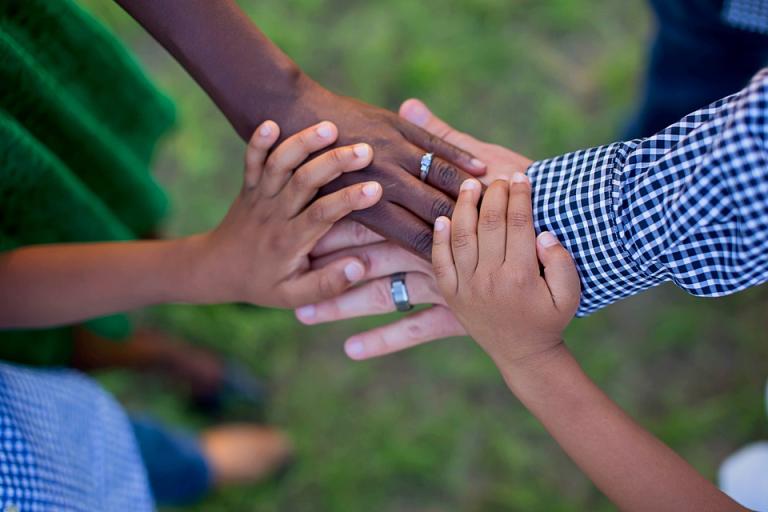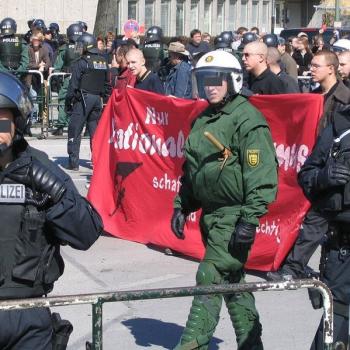
First, to catch readers up on news that, to be honest, they’re probably better off if they haven’t been paying attention to, tech writer Sarah Jeong was hired on at the New York Times and, shortly thereafter, was revealed to have written a large number of anti-white tweets, from the period 2013 to 2015. (The twitter thread by Nick Monroe documents large numbers of hostile tweets, found by searching for all tweets by her account with the phrase “white people”.) The New York Times came to her defense with a statement that she “regrets” her statements (seeming not so much in the manner of an apology as a recognition that they were imprudent) and that they were only ever responding to people who had harassed her (which seems to be wishful thinking). She has now acquired large numbers of defenders (e.g., Vox), critics (such as Andrew Sullivan), and middle-grounders who say that what she wrote was bad but that the game of digging up dirt to get people fired based on past misdeeds needs to come to an end (see David French).
First, a comment on terminology: we’re hearing the repeated assertion that Jeong’s comments were in no way racist because by definition only people in power (that is, whites) can be racist. Now, never mind that most of the world, whites are not the ethnic group in power — and, in East Asia (Korea, Japan, China, etc.) there’s not even the postcolonial dimension to power. But this concept that “racism = prejudice plus power” is a matter of sociological jargon. Pretty much everyone outside the academic world would define racism as prejudice against people due to their race. Why should ordinary English-speakers be obliged to adopt sociological jargon instead of the everyday meaning of words?
But let’s grant this assertion and instead revert to using the word “prejudiced” rather than “racist” or “prejudice” instead of “racism.” I can’t really account for why it’s fallen out of favor since it’s a perfectly serviceable word, unless it’s a matter of responding to a need to specify in what way an individual was prejudiced (racial prejudice? prejudiced against people of other religions? etc.). According to the anti-racists’ own definitions, Jeong is prejudiced against white people even if, because her ethnic group does not have the power to cause harm to them, she is not “racist.”
But I suspect that those same anti-racists would object to rephrasing complaints into “Jeong is prejudiced” using some complaint such as “that’s blaming the victim,” e.g., “ethnic minorities shouldn’t be criticized for being prejudiced because of all they’ve suffered; this only points to the obligation whites have to behave better so as to avoid being the recipients of prejudice.”
Having said this, here’s Vox’s take on the whole dispute: addressing Sullivan’s criticism of her use of the hashtag #cancelwhitepeople, for instance, Zach Beauchamp says,
The problem here, though, is assuming that Jeong’s words were meant literally: that when Jeong wrote “#cancelwhitepeople,” for example, she was literally calling for white genocide. Or when she said “white men are bullshit,” she meant each and every white man is the human equivalent of bull feces. This is expressly Sullivan’s position: He calls her language “eliminationist,” a term most commonly used to describe Nazi rhetoric referring to Jews during the Holocaust.
To anyone who’s even passingly familiar with the way the social justice left talks, this is just clearly untrue. “White people” is a shorthand in these communities, one that’s used to capture the way that many whites still act in clueless and/or racist ways. It’s typically used satirically and hyperbolically to emphasize how white people continue to benefit (even unknowingly) from their skin color, or to point out the ways in which a power structure that favors white people continues to exist.
I get that white people who aren’t familiar might find this discomforting. Sullivan thinks it’s unacceptable on an “an open-forum website like Twitter.” But the reality is that Twitter is where these conversations between people of color are taking place, and (given the 280-character limit) it’s a lot easier to use the kind of “white people” shorthand rather than adding endless qualifications (“a certain kind of white person, definitely Not All White People,” is pretty lengthy).
So what Beauchamp seems to be saying is this: “you’re eavesdropping on conversations that weren’t meant for you.”
But let’s think about that.
The justification is essentially that Jeong and her community of Social Justice Twitter, being beaten down by racism, need to have a safe space in which to vent about the injustices they experience, and that they should be free to use Twitter as this space without needing to qualify every tweet in which they express their unhappiness with the world.
Were these tweets in response to specific incidents of harassment? Jeong’s anti-white-people tweets continued for too long a time period to be explained by this. At the same time, though, all reports were that she did stop apparently of her own accord. Did she do so because she concluded that it reflected poorly on her? Did she decide that they did more harm than good by reinforcing the idea that it’s OK to voice angry sentiments about outgroup people? Did her circle of friends in fact wisely step away from this rhetoric collectively because they recognized the harm it did to themselves to focus on their resentments? Was she receiving reinforcement for her tweets, recognition, retweets, new followers, which became less necessary as she continued to build up a name for herself? Or did she move her venting to a more private forum but she still resents white people? And will her white co-workers feel uncomfortable, especially those who are her subordinates such as whatever administrative assistant might be assigned to her?
Fundamentally, though, I just don’t buy the Vox article’s claim that essentially twitter was a private forum in which Jeong communicated with her community, which we are now eavesdropping on.
Folks, that’s not how Twitter works. Twitter is a public forum. Jeong is a writer on technology, for crying out loud. She has 89,000 followers (though conceivably during 2014 when she was spewing her anger, she may have had fewer). She should know this. She should know that there are other platforms for private discussions. Maybe she thinks that Facebook Is For Old People, but Facebook’s ability to set privacy settings to “friends only” or to set up a closed group are two ways to accomplish exactly the ability to vent without the whole world knowing about it. At best, one could give her a bit of a pass on the assumption that, in getting carried away, she forgot about this — but, again, the whole point of aspiring writers being on twitter is exactly to promote themselves.
But I’ll go back to the example set of a friend from grad school. I’ve now lost touch with her, but back in the day, we would both get into a routine of bonding over shared venting about things we disliked, in particular, an RCIA program which appeared wishy-washy in teaching actual Catholic doctrine. Over the years, she’s blogged in various incarnations, and I’ve watched her launch into a long litany of reasons why everyone around her, and sexism in general, has conspired to prevent her from achieving her dreams, which leaves me very aware of the fact that this sort of venting can easily move from being productive to being damaging.
Image: https://pixabay.com/en/twitter-social-media-icon-social-3319619/













